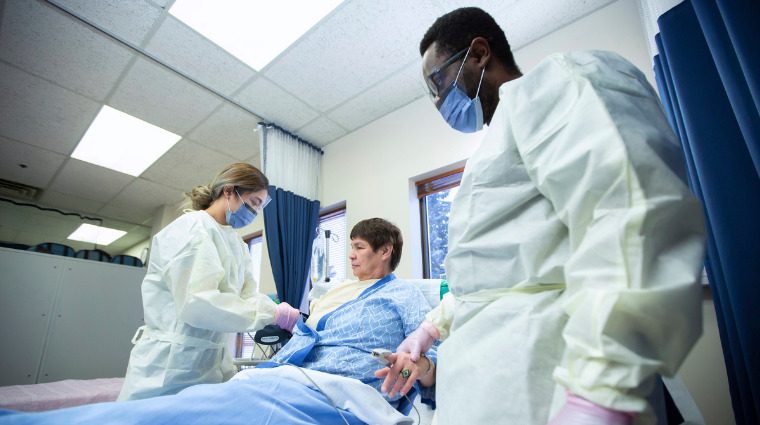
Collaboration between nursing and health sciences professionals is key
Quality patient care requires the collaboration of a team of health care providers. Interprofessional education events held in March brought Saskatchewan Polytechnic students from various health care courses together to develop these skills.
The online education sessions involved more than 1,200 students and nearly 200 faculty facilitators from Regina, Saskatoon and Prince Albert campuses.
“This experience is part of the commitment from the Schools of Nursing and Health Sciences to prepare our students for their future practice as members of a health care team,” says Anna Power-Horlick, interim Interprofessional Education coordinator at Sask Polytech.
Students from a wide cross-section of programs participated in the interprofessional training, including Paramedic, Psychiatric Nursing, Continuing Care Assistant, Dental Assisting, Dental Hygiene, Internationally Educated and Bridging Registered Nurse, Collaborative Nurse Practitioner, Medical Diagnostics, Practical Nursing, Saskatchewan Collaborative Bachelor of Science in Nursing, Pharmacy Technician, Therapeutic Recreation and Health Information Management.
Working in groups, students were presented with first-person patient narratives describing a patient’s journey through the health care system.
“With support from their facilitator, students engaged in a discussion about the patient’s story,” said Power-Horlick. “The discussion was an opportunity for students to learn from, about, and with each other, and to experience the importance of team communication that support patient, family and client care.”
The interactive exercise brought students together to hear patient stories. Students listened to two patient narrative videos, prerecorded in partnership with the Saskatchewan Health Authority Patient and Family Advisors. Following the videos, faculty facilitators guided students through a discussion activity where they reflected on what they learned from the patient’s stories and how this would impact their studies and future in a health care career.
The primary goal in a patient family narrative session is to help Health Sciences students understand health experiences from the perspective of patients and their support people. The sessions also give students the opportunity to develop skills needed in patient and family-centred care.
The importance of communication and teamwork is made very clear as students worked through the patient stories.
“It was good to gain some practice advocating for potential clients,” says Cassandra Beckett, a student in the Therapeutic Recreation program.” Cassandra was eager to learn about different health care professions and to teach others about Therapeutic Recreation adding, “I'm excited to apply everything I've learned from this experience in the future.
The experience of working with patient narratives incorporates the accreditation standards for Nursing and Health Sciences programs as well as the Canadian Interprofessional Health Collaborative National Competency Framework. It also reflects the Sask Polytech mission to inspire success in every learning journey.
Learn more about the School of Health Sciences and the School of Nursing.
Published April 2022.

